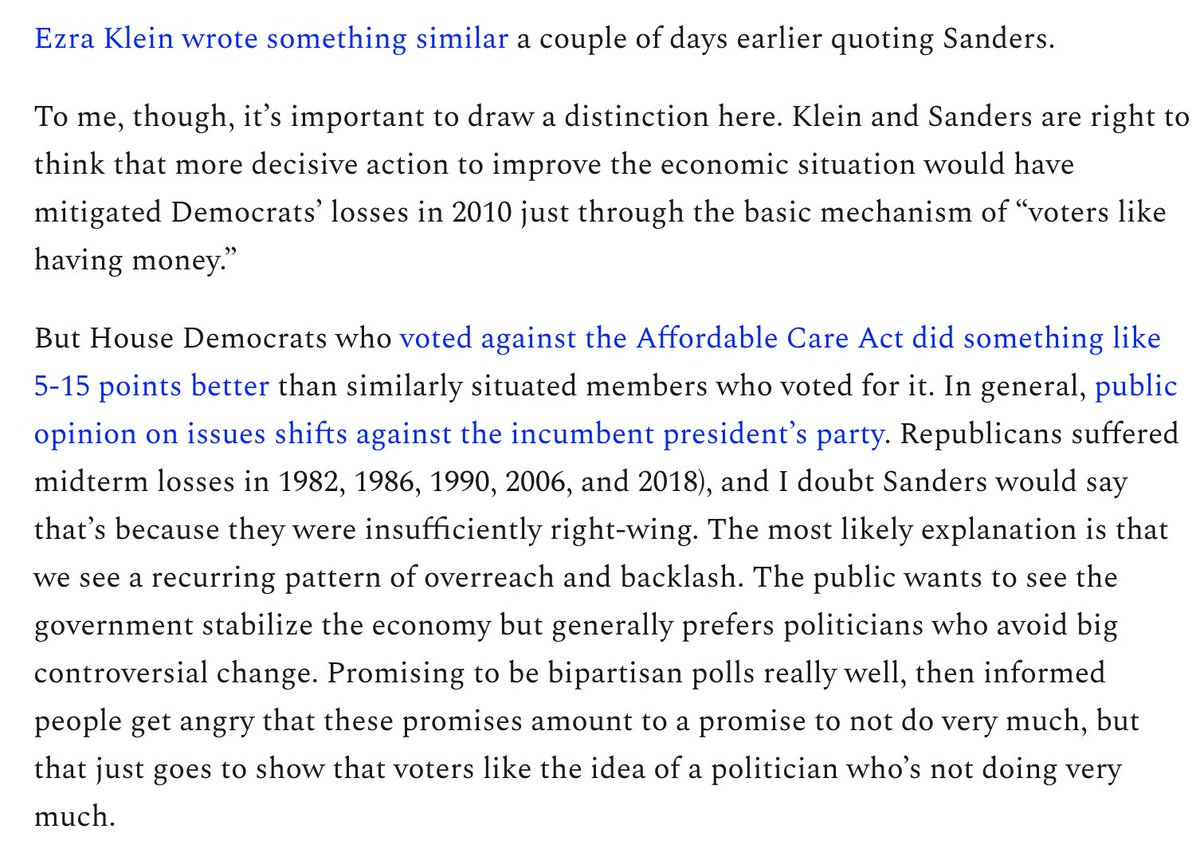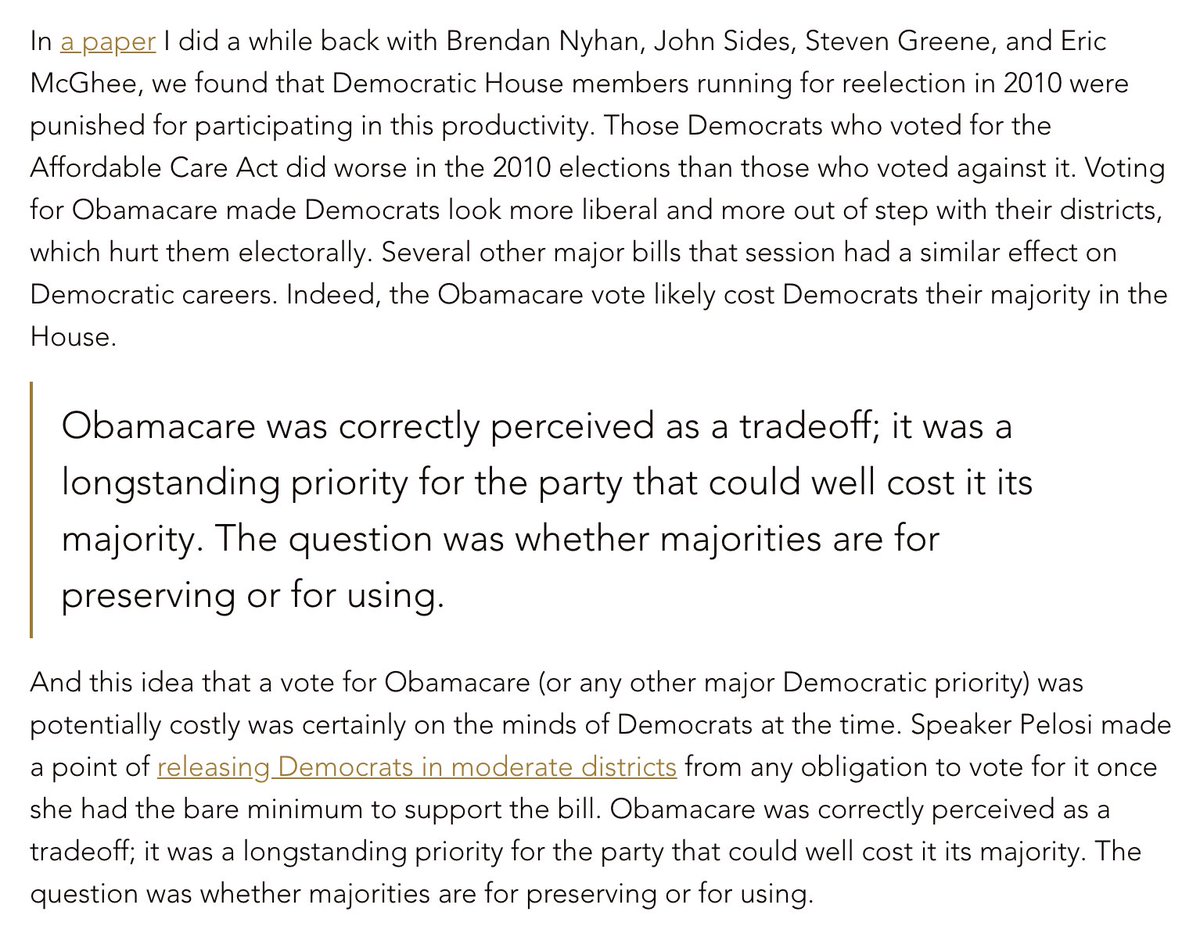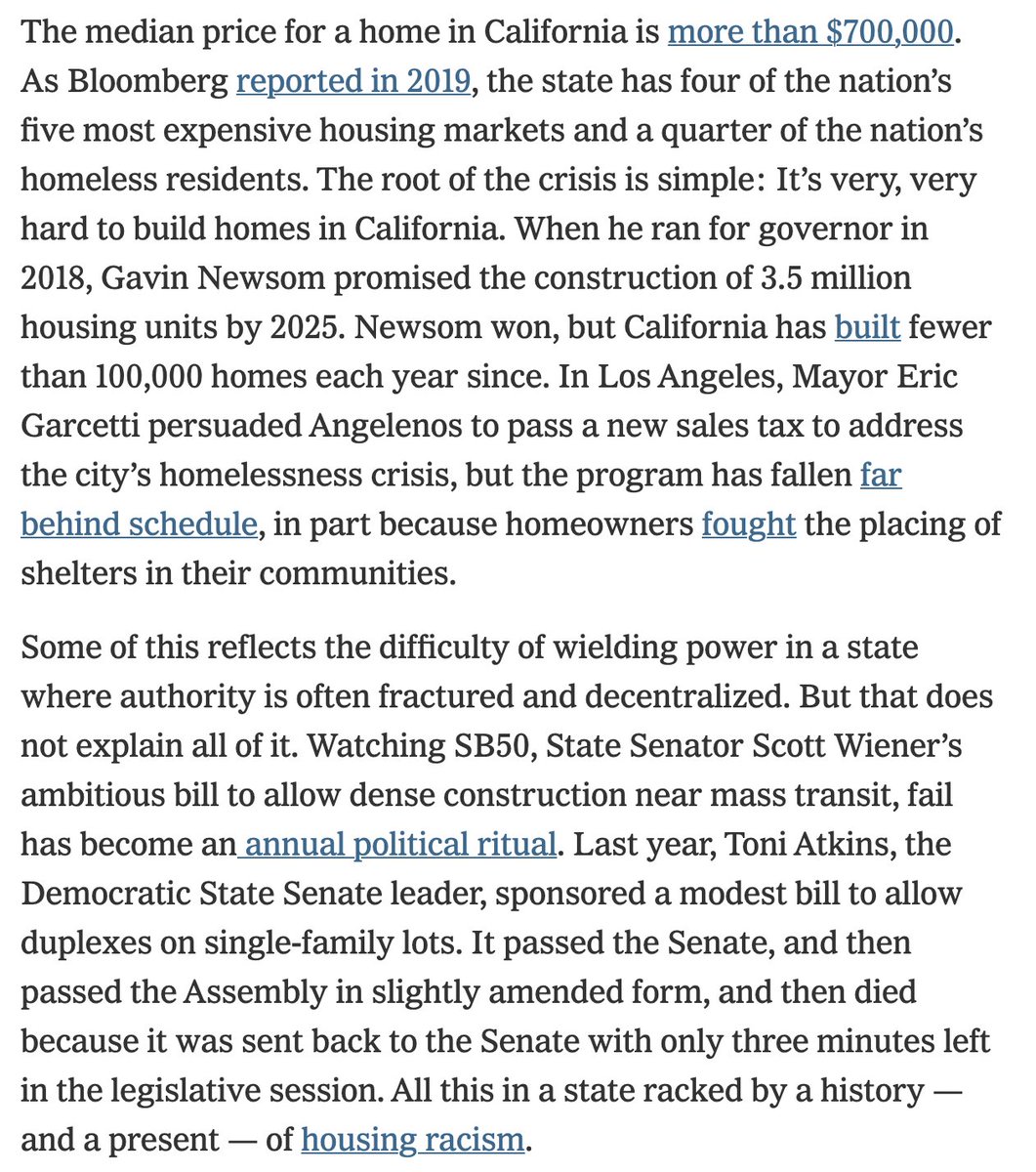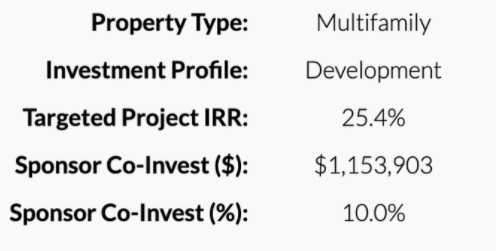That's what I mean by symbolically progressive, operationally conservative.
So I'd recommend reading this thread from Dave, but I thought about some of these policies, and how they fit into the whole, a lot, and want to offer a different interpretation.
It's very in vogue to bash California and this doesn't even reach to some things that deserve scorn, like the continuing control of the Western States Petroleum Association and the state Chamber of Commerce in policymaking. And yet-https://t.co/vHZ6GM7QF8
— David Dayen (@ddayen) February 11, 2021
That's what I mean by symbolically progressive, operationally conservative.
I don't see that as balancing the scales on, say, high-speed rail.
If we can't fix those, I can't say I'm optimistic on climate change, or progressives continuing to hold power.
But until we get the basics right, people aren't going to listen to us on the longer-term stuff.
More from Ezra Klein
STOP THE COUNT!
— Donald J. Trump (@realDonaldTrump) November 5, 2020
As @mashagessen explained in this interview, using Balint Magyar's framework, an autocratic attempt is "the first stage when autocracy is still reversible by electoral means."
The point is to make the regime's rule irreversible by electoral means, which is explicitly what Trump, et al, are trying right now.
"Then, at some point, there comes the autocratic breakthrough when you can no longer use electoral means to reverse that autocracy."
"Then autocratic consolidation, where it’s just consolidating ever more power and money, making it ever less possible to change."
There is an element of farce to Trump's tweets, his actions, his cronies. It makes it easy for many to discount what he's actually saying, and trying. https://t.co/GwC3KGbpkC
It's fitting for the internet era, when the worst ideas and figures come layered in irony.
— Brian Beutler (@brianbeutler) November 5, 2020
My reporting here convinced me that there's no large effect in either direction on labor force participation from child allowances. Canada has a bigger one than either Romney or Biden are considering, and more labor force participation among women.
But what if that wasn't true?
Forcing parents into low-wage, often exploitative, jobs by threatening them and their children with poverty may be counted as a success by some policymakers, but it’s a sign of a society that doesn’t value the most essential forms of labor.
The problem is in the very language we use. If I left my job as a New York Times columnist to care for my 2-year-old son, I’d be described as leaving the labor force. But as much as I adore him, there is no doubt I’d be working harder. I wouldn't have stopped working!
I tried to render conservative objections here fairly. I appreciate that @swinshi talked with me, and I'm sorry I couldn't include everything he said. I'll say I believe I used his strongest arguments, not more speculative ones, in the piece.
I appreciate his intellectual curiosity and effort. I have quibbles. But my big disappointment is there was no mention of unintended consequences, which we discussed and which are kind of THE core conservative concern on this issue.
— \U0001d682\U0001d68c\U0001d698\U0001d69d\U0001d69d \U0001d686\U0001d692\U0001d697\U0001d69c\U0001d691\U0001d692\U0001d699 (@swinshi) February 18, 2021

Over at Mischiefs of Faction, @Smotus makes a similar point: https://t.co/al6fS5tZXP

I want to be clear here: I’m saying that the Affordable Care act was, from a political perspective, badly designed, and that *a different health care plan* might’ve led to a better Dem performance in 2010. But these arguments don't grapple with that.
To @Smotus’s point, Pelosi released those House Democrats at the end, not the beginning. Having covered the beginning of this, I can tell you a lot of those Democrats thought a bipartisan health care bill would be great politics for them!
But they didn’t get that.
This is key. The ACA was built on the political theory that:
1. Bipartisan policy is easier to pass — and more popular once passed.
2. Working off of the Heritage Foundation/Romney template could get you a bipartisan health bill.
1 was probably right. 2 was utterly wrong.
More from Business
Tech created this ecosystem but there’s a historical cultural bias in tech towards media as unprofitable. That changed a long time ago.
Many more angels that invest in people will invest in media founders. Many traditional media people will *become* media founders.
But not necessarily big companies. Just solo individuals or small groups doing content, like Notch doing Minecraft. Because media scales like code.
Increasingly feeling like “keeping the team size as small as possible, even to one person” is the unarticulated key to making media profitable.
Substack and all the creator tools are just the start of this ecosystem.
Useful concept: the media stack for content creators
— balajis.com (@balajis) January 20, 2020
- Spotify, iTunes for podcasts
- Descript for podcast editing
- Figma, Canva for graphics
- YouTube for video
- Twitter, FB for distribution
- Substack for newsletters
- Makerpad for nocode
- Ghost, Medium for blog
What else?
The process of converting social influencers into media founders (a trend that has been going on for 10+ years at this point) will be increasingly streamlined.
V1 is link-in-bio, Substack, and sponcon.
V2 likely involves more angels & tokenization a la @tryrollhq. What else?
Why lack of awareness? Influencer monetization numbers are not as public as tech numbers.
There isn’t a TechCrunch & CrunchBase for media founders, chronicling the valuations of influencers.
But that’d be quite valuable. If you are interested in doing this, please DM with demo.
























